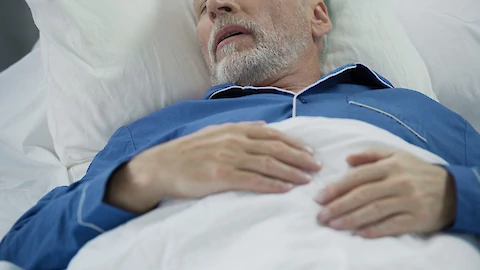
Sleep apnea is a serious medical condition. It is essential for seniors living alone to understand the risks and be aware of the symptoms. This article will discuss the short and long-term effects of sleep apnea, and what seniors who live alone can do to help manage the condition and keep themselves safe.
Effects of Sleep Apnea
Sleep apnea is a medical condition where breathing stops for short periods of time during sleep, several times per night. This results in poor quality of sleep and can lead to other health issues.
Common symptoms of sleep apnea include daytime fatigue, headaches upon awakening, difficulty concentrating during the day, snoring loudly at night, and sudden awakenings with shortness of breath or gasping for air. Untreated or inadequately managed sleep apnea in seniors can lead to other health problems such as heart disease, stroke, type 2 diabetes, or mental decline.
Common risk factors for sleep apnea include being overweight or obese, having a bigger neck circumference, smoking, taking certain medications (such as sedatives and painkillers), and frequent alcohol use at night. Senior adults may be particularly susceptible to sleep apnea due to changes in facial structure that occur naturally.
Treatment Options for Seniors with Sleep Apnea
Lifestyle Changes
Making lifestyle changes is the first step in managing sleep apnea, especially for seniors living alone. Simple proactive lifestyle changes may include weight loss, avoiding alcohol at night and before bedtime, quitting smoking if needed, and changing sleeping positions to decrease pressure on the airways.
Oral Appliances
Oral appliances are small devices that fit over the teeth and exert gentle pressure to keep the receiver's throat open while they're sleeping. In some cases, this type of treatment may be sufficient to reverse milder forms of sleep apnea. These appliances often look like mouthguards and may be used in conjunction with other treatment options.
CPAP Machines
Continuous Positive Airway Pressure machines treat sleep apnea by piping humidified air into the nose through tubes and a mask. The air creates pressure that keeps the throat open during sleep. This ensures a steady flow of oxygen and prevents breathing stoppages. CPAP machines are the most common treatment for severe sleep apnea.
Important Considerations for Seniors Living Alone with Sleep Apnea
Seniors living alone need to take extra precautions when it comes to managing their sleep apnea. This includes having a regular sleep schedule and avoiding alcohol, caffeine, and sleeping aids close to bedtime. Seniors living alone should also have access to both physical and emotional support networks and caretakers to help them make necessary lifestyle changes and avoid feelings of isolation.
Learn How Senior Helpers Can Help
Sleep apnea is an important condition to be aware of for seniors living alone. For information on personalized, in-home services to help manage the effects of sleep apnea, contact Senior Helpers Sarasota-Bradenton today. Our professional caregivers can help with lifestyle changes, doctor visits, and establishing a home that supports seniors living alone. Contact us if you or your senior loved one in the Sarasota, Bradenton, Longboat Key, or Siesta Key areas needs help managing sleep apnea.